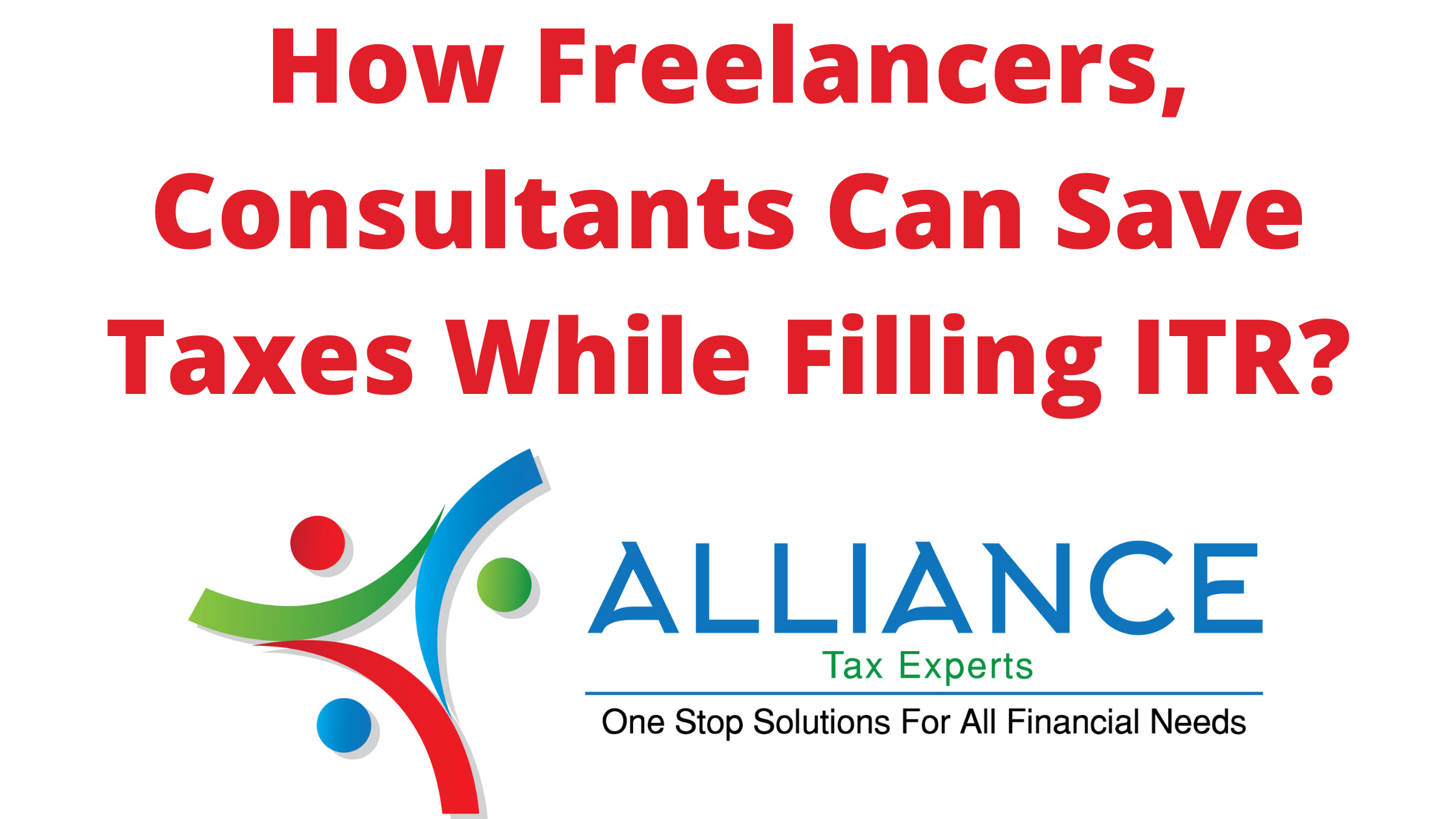
16 Nov
How Freelancers Consultants Can Save Taxes While Filling ITR
How Freelancers, Consultants
Can Save Taxes While Filling ITR
Even
freelancers and consultants can avail of tax benefits and save taxes when
filing income tax returns. Here's how to do it.
Filing
an Income Tax Return: The income earned by a freelancer is taxable as profit
and gains from the business or profession.
India
is moving towards becoming a gig economy, where temporary, flexible jobs are
common and companies tend to hire independent contractors and freelancers
instead of full-time employees.
A
freelancer is not a salaried company employee. Freelancing income is earned
when assigned to a specific assignment for a specific period of time, where the
payment is received upon completion and submission. Any income earned by
demonstrating intellectual or manual skills is considered business income and
is taxable under the Income Tax Act as "Profit and Gains from Business or
profession".
TDS
Anyone
paying a freelancer above Rs 30,000 is required to deduct income tax. The
current rate of a tax deduction on total income is 10%. The professional body
will also issue a Form 16A detailing the tax thus deducted.
For
example, a finance professional will be paid Rs.1,00,000 by a professional
body. In such a case, the business entity will pay Rs 10,000 to the income tax
department and the remaining Rs 90,000 to the business itself.
Expenditure
permitted for the calculation of 'business or profession under profits and
gains'
The
income earned by the freelancer is taxable as profit and gains from the
business or professions. Therefore, unlike salaried employees, a freelancer is
also entitled to claim a tax deduction for expenses incurred for the execution
of the work.
Legally,
such expenses should be related to the work done by the freelancer and should
not be in the form of capital expenditure or personal expenses. When
calculating taxable income, tax deductions can be claimed on various expenses
such as rent, repairs, depreciation, office expenses, travel expenses, meals,
entertainment, hospitality expenses, local taxes, software expenses, website
expenses and insurance.
It
is legal to claim such expenses, and every business has a right to do so, which
will have a direct effect on the immediate reduction of taxes. In some cases,
tax deductions can increase up to 30% of the total cost.
Tax
deduction for investment
Up
to Rs 150,000 deduction can be claimed for National Savings Certificate, Public
Provident Fund, Term Deposit, Post Office Time Deposit Account, Life Insurance,
School, College, University tuition fee payment, investment in UTI units or
investment in Mutual. Funding
Tax
deductions for medical insurance
The
deduction can be claimed by a freelancer in respect of medical insurance paid
for premium. The maximum deduction allowed under this provision is Rs. 25,000
(Rs. 50,000 in the case of senior citizens). Additional deductions for
preventive health check-ups also amount to a total of Rs. Up to 5,000 is
available.
Tax
deductions for educational loans
Where
a freelancer has taken a loan from a financial institution or a recognized
charity for the purpose of his / her higher education or the higher education
of his / her relatives, deduction in respect of interest paid by such person
will be allowed. This deduction is allowed for 8 financial years or till the
full interest is paid. There is no limit to the deductions allowed under this
provision.
Tax
deductions for contributions of charities
Contributions
made to specific aid funds and charities can be claimed as a total deduction
from taxable income. Whether it is the floods in Kerala, the Pulwama attack,
the Prime Minister's Relief Fund or any other social cause, business people
should sit quietly and consider the social contributions they have made
throughout the year. All such contributions to the notified institutions will
help them to reduce taxes for the year.
Tax
deduction for interest
Interest
(no time deposit) on savings account deposits in a banking company,
co-operative society or post office will be allowed as a tax deduction. It has
a general limit of Rs 10,000 for individuals (Rs 50,000 for senior citizens).
This is a provision that can be used by each freelancer to reduce their taxable
income up to Rs. 10,000.
Deduction
for medical treatment in case of disability
Freelancer
for medical treatment (including nursing), training and rehabilitation due to
one's own disability or disability of a dependent family member, Rs. 75,000 and
in case of severe disability Can claim a deduction of up to Rs 125,000. Gross
income.
Deduction
for interest on home loan
The
Government of India has always shown a strong tendency to encourage citizens to
invest in the home. A person who earns Up to Rs 2,00,000 is eligible for
deduction in respect of interest paid on home loans. This deduction is eligible
for self-occupying and abandoned property. An additional tax benefit of Rs. 50,000
can be availed if a person owns only one house or property. Therefore, a total
of Rs 250,000 is available as a deduction for interest on the home loan.
Presumptive
Taxation Scheme
Any
designated freelancer with an income of less than Rs 50 lakh can avail of this
scheme, through which he can choose to declare only 50% of his annual income as
taxable income. This provision will halve the tax and compliance burden on
freelancers.
Thus,
a freelancer can also avail of income tax benefits and save tax while filing
income tax returns. He just needs to have some knowledge of the tax plans
included in the law.
#money
#incometax #efiling #freelancer #taxconsultant #onlineitr #professionals #tds
#nearme #alliancetaxexperts #incometaxreturn #taxexperts #taxdeductions